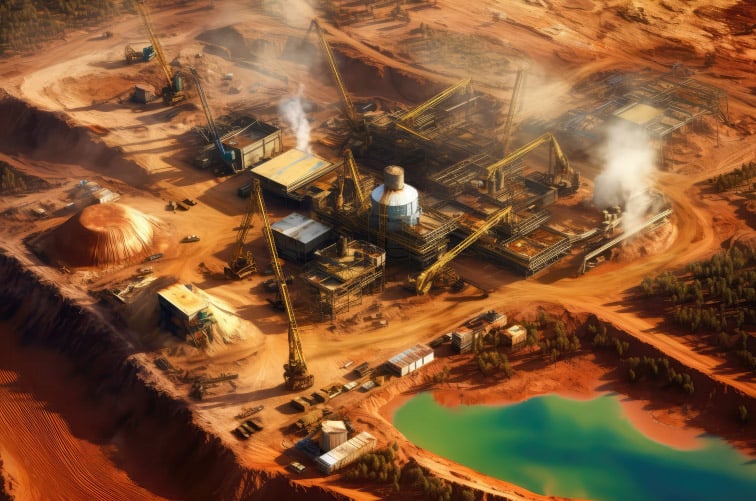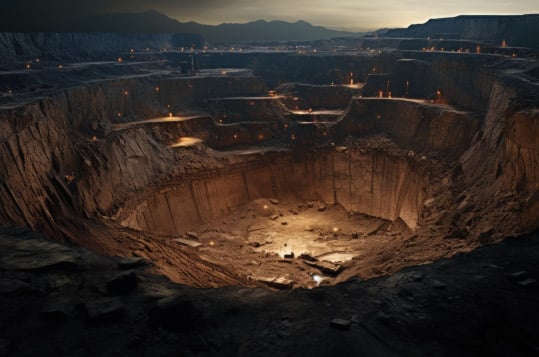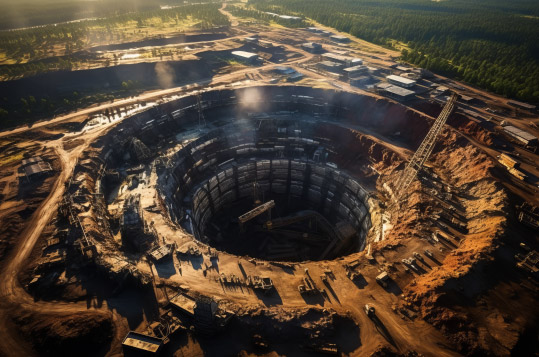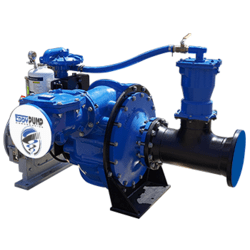Rare Earth Mining Applications of EDDY Pump



Applications of Our Slurry Pumps in Rare Earth Mining

- Ore Transport: These heavy-duty slurry pumps transport rare earth metals ore from the mining site to the processing plant. The ore is typically mixed with water to form a slurry, and these submersible pumps efficiently handle the abrasive and dense mixture over long distances.
- Beneficiation: Rare earth ore is processed through beneficiation to separate valuable minerals from the gangue materials. The mining slurry pumps or the submersible pumps transfer the ground ore slurry into flotation cells or other beneficiation equipment for further processing.
- Tailings Management: After rare earth metals extraction, the remaining waste material, known as tailings, is transported to tailings storage facilities with the aid of our submersible pumps. The mining slurry pumps are essential in effectively handling and disposing of these tailings, minimizing environmental impact.
- Water Reclamation: Rare earth mining operations require significant water usage for processing and dust suppression. Industrial slurry pumps are employed to reclaim and recycle water from settling ponds, tailings ponds, or other water bodies, reducing overall water consumption and promoting sustainable water management.
- Chemical Handling: Various reagents and chemicals are used in rare earth mining processes. Heavy-duty slurry pumps transport these chemicals safely and accurately, ensuring precise dosing and efficient utilization.
- Settling Pond Management: During rare earth mining, settling ponds allow suspended solids to settle out from the water. The mining slurry pumps manage these settling ponds, ensuring proper disposal or reuse of the settled solids.
- Filtration and Thickening: Industrial slurry pumps help filtration and thickening processes, where water is separated from the rare earth metals concentrate, resulting in a denser and more manageable material for further processing.
- Environmental Remediation: Rare earth mining companies prioritize environmental remediation efforts to restore ecosystems affected by mining activities. Submersible pumps from EDDY Pump assist in cleaning up and removing contaminants from water bodies, promoting the remediation process.
- Emergency Response: In the event of accidents or environmental emergencies in rare earth mining operations, our submersible pumps can be crucial in containing spills, recovering spilled materials, and supporting cleanup efforts.
- Fertilizer and Advanced Technology Production: Rare earth metal elements are used in various high-tech applications, including electronics, renewable energy, and defense industries. The slurry or submersible pumps are crucial in processing rare earth materials for these advanced technology applications.
CALL FOR SALES OR SUPPORT
If you need help with Pump Selection, Sales or Engineering Support
Call 619-345-5446

Application of EDDY Pump’s Hydraulic Dredging in Rare Earth Mining

- Extracting Rare Earth-Rich Sediments: Hydraulic dredgers extract rare earth-rich sediments from underwater locations such as riverbeds, lakes, or offshore deposits. These sediments contain valuable rare earth metals or minerals that can be further processed for extraction with the aid of our submersible pumps.
- Tailings Retrieval and Reprocessing: After the ores of rare earth metals undergo beneficiation, the remaining material, known as tailings, is stored in ponds or dams. Hydraulic dredging equipment retrieves and reprocesses these tailings, extracting any remaining rare earth content and minimizing environmental impact.
- Underwater Ore Mining: Some rare earth deposits may be found below the water table or submerged in underwater bodies. Hydraulic dredgers mine these underwater rare earth metals deposits efficiently, pumping the slurry to the processing plant for extraction.
- Clearing Sediment Buildup: Sediment buildup in water bodies can hinder transportation routes and affect mining operations. Hydraulic dredging equipment is utilized to empty these areas, ensuring smooth transportation of materials and equipment to and from the mining sites.
- Pond and Lagoon Dredging: Rare earth mining operations often utilize ponds and lagoons to manage water resources and store waste materials. Over time, these ponds may accumulate sediment, reducing their storage capacity. Hydraulic dredgers remove the residue and maintain the proper water storage capacity.
- Land Reclamation and Rehabilitation: After rare earth mining activities conclude in a specific area, hydraulic dredging equipment can reclaim land by filling in mining pits or leveling the terrain, facilitating land rehabilitation and repurposing.
- Environmental Remediation: Companies mining rare earth metals prioritize environmental remediation efforts to restore ecosystems affected by mining activities. The slurry pump dredges assist in cleaning up and removing contaminants from water bodies, promoting the remediation process.
- Preventing Erosion: Rare earth mining activities can increase erosion in surrounding areas. Hydraulic dredging equipment can stabilize riverbanks, avert sediment runoff, and protect adjacent ecosystems, mitigating the impact of decline caused by mining operations.
- Emergency Response: In the event of accidents or environmental emergencies in rare earth mining operations, the slurry pump dredges can be crucial in containing spills, recovering spilled materials, and supporting cleanup efforts.




